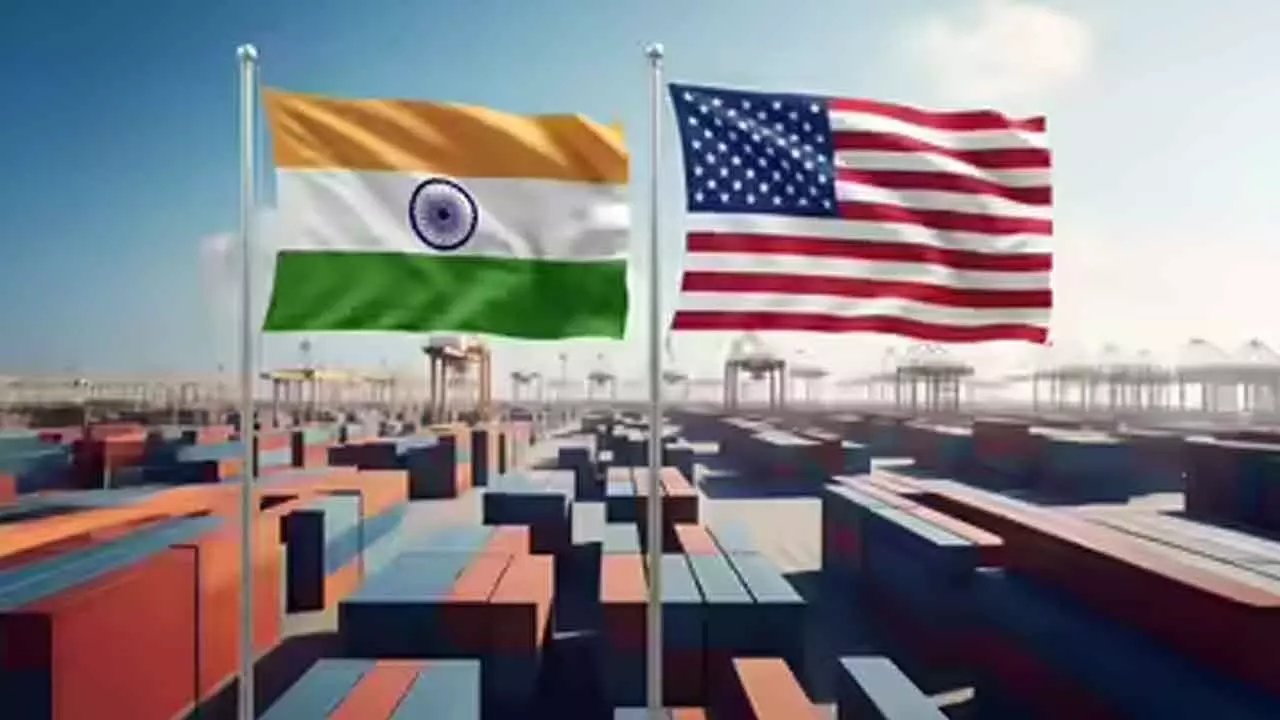Clock Ticking: India-US Race to Seal Mini Trade Deal as Trump's Tariff Deadline Looms
As the July 9th deadline approaches, India and the US are in intense negotiations to finalize a limited trade deal. Will sensitive sectors like dairy and agriculture be excluded? Discover the latest on reciprocal tariffs, market access demands, and the potential implications for both nations.
Clock Ticking: India-US Race to Seal Mini Trade Deal as Trump's Tariff Deadline Looms

With a critical deadline just days away, India and the United States are locked in a high-stakes negotiation, striving to clinch a "mini trade deal" before President Donald Trump's 90-day reciprocal tariff suspension expires on July 9th. This limited agreement, if finalized, is expected to side-step some of the most contentious issues, particularly in the sensitive agriculture and dairy sectors, according to officials privy to the discussions.
The clock is ticking louder than ever. In April, President Trump introduced sweeping reciprocal tariffs on various trading partners, imposing a 26% duty on India, calculated on its trade surplus with the US. While these duties were temporarily suspended, the looming July 9th deadline threatens to reinstate them, potentially impacting Indian exports significantly.
India's primary objective is the complete withdrawal of this 26% tariff. The US, conversely, is pushing for broader market access across numerous industries, including its agricultural and dairy products, and crucially, permission to export genetically modified (GM) crops to India.
"The deal is in its conclusion phase," a senior official revealed, indicating the urgency and advanced stage of the talks. "Most issues related to agriculture may be discussed later. As of now, they seem to be out of the ambit of this phase of the deal." Another official corroborated that the initial agreement would focus primarily on trade in goods, with a view to pursue more comprehensive accords in the future as other matters mature.
For India, a key priority is securing enhanced market opportunities in the US for its labor-intensive sectors, most notably textiles and electronics. However, the American demand for access for GM crops and cattle feed poses a significant challenge. This is a particularly delicate issue for the Indian government, given that a vast majority of its agriculturists rely on subsistence farming on small landholdings. Opening these sectors indiscriminately could have profound socio-economic ramifications for millions of Indian farmers.
Adding another layer of complexity, the US administration has firmly stated its unwillingness to reduce duties below a 10% threshold.
President Trump has made it clear that nations failing to reach an agreement with the United States by July 9th will receive official letters detailing the tariffs they will face on their American-bound exports. Should these intensive negotiations falter, or the July 9th deadline pass without a breakthrough, India risks seeing the 26% tariffs re-imposed, reverting to the April 2nd rates.
The outcome of these frantic last-minute negotiations will not only shape the immediate trade landscape between the two nations but also set the tone for their broader economic relationship in the months and years to come. All eyes are now on Washington as the final hours tick away towards this pivotal deadline.

